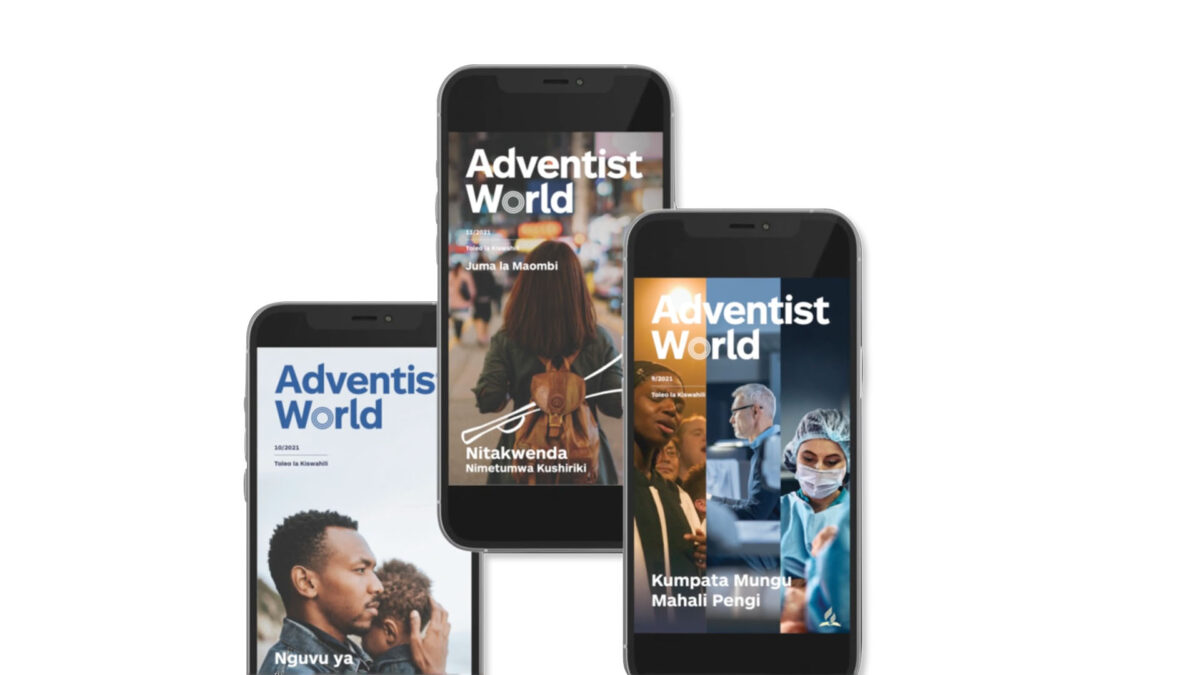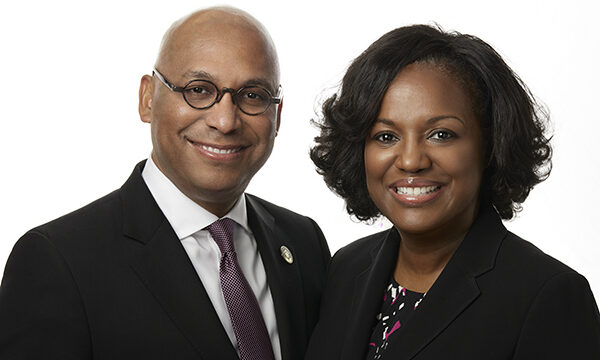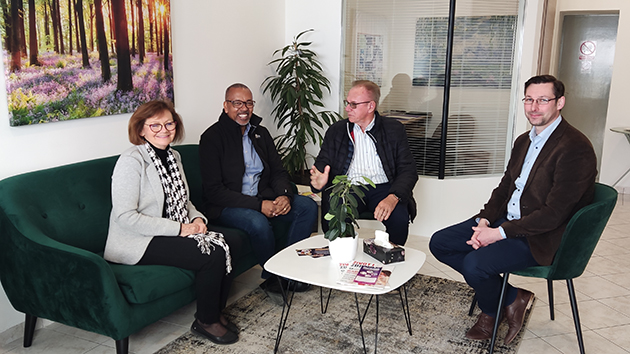With the help of WhatsApp

In October 2020 Adventist Review Ministries, in partnership with the East-Central Africa Division (ECD), made history: the first Kiswahili edition of the Adventist World magazine was delivered digitally via WhatsApp, free of charge.
Why in Kiswahili, and why on a mobile platform?
KISWAHILI
Kiswahili, also known as Swahili, is an indigenous East African Bantu language, with about 35 percent of its vocabulary stemming from Arabic, owing to 12 centuries of history with Arabic peoples. It’s becoming the lingua franca of East Africa and many parts of Central Africa.
Until 2020 Kiswahili represented the largest language group within the worldwide Adventist Church not yet served by the Adventist World magazine. Both Adventist Review Ministries and the ECD leadership have long wanted to publish a Kiswahili edition of Adventist World, not only to provide translated material in Kiswahili, but to offer 25 percent of the content in articles written by original Kiswahili-speaking authors from within the ECD territory.
The ECD currently is the largest and fastest-growing division within the Adventist Church,¹ followed closely by the Southern Africa-Indian Ocean Division (SID). It serves the countries of Burundi, Democratic Republic of the Congo (DRC), Djibouti, Eritrea, Ethiopia, Kenya, Rwanda, Somalia, South Sudan, Uganda, and the United Republic of Tanzania. Six of these countries (Tanzania, Kenya, Uganda, DRC, Burundi, and Rwanda) use Kiswahili, as do people in northern Zambia, Malawi, Mozambique, and the Comoro Islands in the SID territory. Many Kiswahili speakers live in the African diaspora.
Surprisingly, the challenges of a worldwide pandemic provided the opportunity to implement the long-desired plan for a Kiswahili Adventist World, and on a unique platform—a WhatsApp channel.
WHY WHATSAPP?
According to the GSMA’s Mobile Economy Reports, by 2025, 1 billion people will have access to a SIM connection in Africa, a 3.7 percent increase from the 2017 statistics. A growth in mobile phone access presents economic growth opportunities. Kenya’s mobile growth from 1 percent access in the late 1990s to 39 percent in 2014 is an example. It played a major role in the country ’s growing economy, alongside exciting technological innovations. Pew Research Center now puts Kenya at 80 percent and Tanzania at 75 percent mobile access, even though these percentages are still signifificantly lower regarding smartphones.²
WhatsApp is currently considered the world’s most popular messaging app in both the personal and business sectors, and is especially used in the Global South.³ It provides an additional platform when sharing content with church members in sub-Saharan Africa.
In August 2020 the cross-continent committee of project developers began planning in earnest. While some managed logistics for translation via the Ufunuo (Revelation) Publishing House⁴ of the Southern Tanzania Union Mission, Digital Publications⁵ in Johannesburg, South Africa, designed and provided technical development of the app. More than 40,000 mobile numbers were collected from willing church members and workers, and SMS messages were sent, inviting them to subscribe via WhatsApp. On October 1, 2020, the first content was published to the Adventist World Kiswahili WhatsApp business channel, and notifications sent to all subscribers.
Since October 2020 the Adventist World Kiswahili edition has been delivered free to subscribers each month on WhatsApp, as well as weekly GraceNotes by Bill Knott, Adventist World executive editor, translated by Chacha Daniel Moseti in Tanzania.
Subscribers can conveniently read the magazine and GraceNotes online as well as all previous editions of the materials. They can send questions and requests to the Adventist World staff. These range from doctrinal questions to requests for Sabbath School lesson materials and prayer requests. Subscribers may also share the materials with friends via the WhatsApp channel’s menu.
The church produces materials for the purpose of sharing the good news of God’s love, His salvation, and His imminent return with others. The Kiswahili WhatsApp group is a new way to do that.
MAKING A DIFFERENCE ALREADY
Samuel Garama from Kenya recently contacted us to request permission to share this material with his students. Intrigued by his request, our proofreader, Lilian Mweresa of Kenya, called him to find out more:
How did you find out about the Adventist World Kiswahili WhatsApp group?
While perusing a printed edition of Adventist World, I found instructions on how to join the Kiswahili WhatsApp group. I added the phone number provided to the contacts on my phone. Using the phone number, I was then able to send a message and join.
What area are you from, and what do you do?
I come from Kilifi town, Kilifi County, on the coast of Kenya. I teach Bible study at Majaoni Primary School, even though I’m not a professional teacher.
How does the Adventist World material help you do that?
It provides teachings and short stories that I share with my students as Bible lessons. I have 246 pupils between 8 and 15 years old.
How did you end up teaching Bible at the school?
The Majaoni school was looking for someone to lead the Program of Pastoral Instruction (PPI). Since my church, the Kilifi East Seventh-day Adventist Church, is near the school, and most of the pupils in that school are in my class at church, I offered to take on the role.
Would you recommend joining the WhatsApp group to your friends?
Yes, definitely. The WhatsApp group has been very beneficial to me, and I would want my friends to enjoy and benefit from the messages as well. Since I learned about the Adventist World WhatsApp group, I’ve been sharing it with the students and my friends. Last month I was able to share it with more than 400 people, including those at my church.
To subscribe, see the “How to Subscribe” sidebar. You can also follow and share our Kiswahili Facebook page and posts, and post your own comments and suggestions at https://www.facebook.com/AdventistWorld-Swahili.
¹ ECD has a membership of 4,452,526 out of 21,556,837 Adventists worldwide. It has a total regional population of 419,926,000, which gives a ratio of 1 in 94 people, https://documents.adventistarchives.org/Statistics/ASR/ASR2020A.pdf, accessed Oct. 3, 2021.
² https://www.geopoll.com/blog/mobile-phone-penetration-africa/, accessed Oct. 3, 2021.
³ https://www.wilsonquarterly.com/quarterly/who-writes-the-rules/africa-whats-up-with-whatsapp/
⁴ https://www.facebook.com/ufunuoph
⁵ https://www.digitalpublications.co.za








